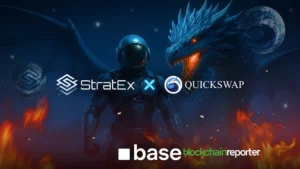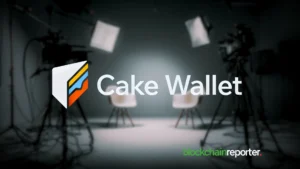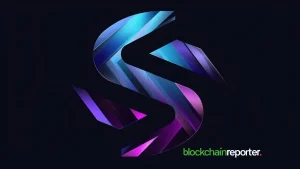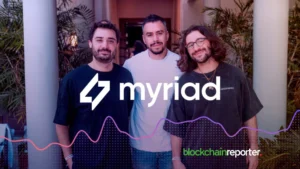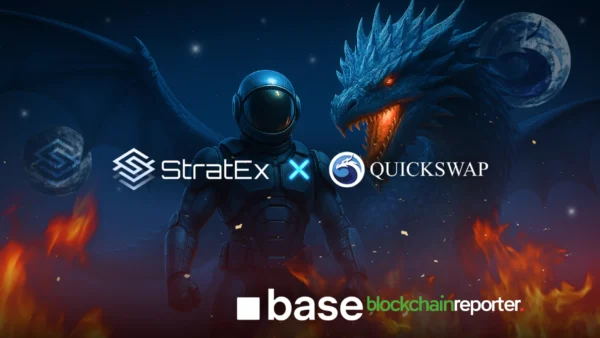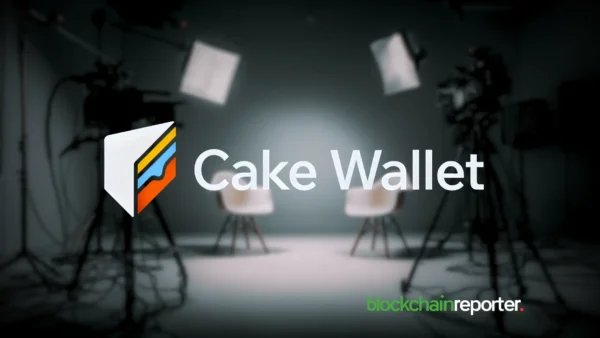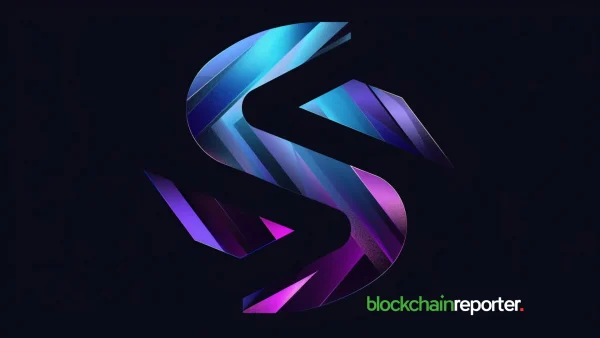
- 1. Preface
- 2. Interview Session
- 2.1. Q1. As Hinkal has become a top-tier platform for privacy-centered blockchain solutions, what inspired its creation, and what is its vision?
- 2.2. Q2. With a remarkable transfer volume of $250M and backing from notable investors, what do you attribute to Hinkal's widespread adoption?
- 2.3. Q3. Why do you believe the institutional adoption of DeFi is hindered by a lack of privacy?
- 2.4. Q4. How does Hinkal's privacy-focused approach differ from traditional privacy blockchains?
- 2.5. Q5. Can you explain the Invisible Wallet and its role in enhancing security and privacy?
- 2.6. Q6. What role does the dApp Proxy play in facilitating private interactions with various DeFi protocols?
- 2.7. Q7. Could you elaborate on zk-SNARKs and stealth addresses, and their contribution to building a privacy-first infrastructure?
- 2.8. Q8. With the growing demand among institutions for asset tokenization, how does Hinkal address privacy concerns?
- 2.9. Q9. How does Hinkal utilize selective disclosure to ensure regulatory compliance while protecting consumer data?
- 2.10. Q10. Given the transparency issues associated with public wallets, do you believe the market is shifting toward privacy-centered wallets on a larger scale?
- 3. Closing Remarks
Preface
Hinkal is a leading privacy infrastructure platform, enabling secure and confidential blockchain transactions. Hinkal ensures the safety and security of blockchains through advanced cryptographic solutions like zk-SNARKs and stealth addresses. In an interview, we sat with Georgi Koreli, the Chief Executive Officer (CEO) of Hinkal in which he shed his opinion on how Hinkal is pioneering privacy solutions for blockchain users and institutions.
Interview Session
Q1. As Hinkal has become a top-tier platform for privacy-centered blockchain solutions, what inspired its creation, and what is its vision?
The premise of blockchains is to substitute traditional banking rails – but this cannot happen when money from private banking accounts to public crypto accounts. Hinkal emerged to address this ugly truth: transparency is hindering widespread adoption. How can we expect to see blockchains take over TradFi when blockchain makes users’ financial activity visible to all? Every purchase, investment and transaction is available to view for anyone with an internet connection. This level of exposure isn’t just a minor inconvenience; it poses real challenges, especially for institutions that rely on confidentiality in their financial dealings.
The real adoption is when enterprises, institutions and individuals can move from their familiar environment (bank account) to similar environment (private Hinkal account) will all the advantages of blockchains. Our goal is to create an environment where individuals and institutions can transact with confidence, knowing their financial details aren’t on public display. We believe that prioritizing can privacy can encourage broader adoption of DeFi, making it a viable and attractive option for all.
Q2. With a remarkable transfer volume of $250M and backing from notable investors, what do you attribute to Hinkal’s widespread adoption?
Hinkal’s growth and acceptance has come from our dedication to developing innovative and unique privacy solutions, like the Invisible Wallet and dApp Proxy. The core of these solutions is composability. Composability means that you do not need to migrate to other chains to have privacy. It means that you can do any action in current liquidity and yield hubs (ETH/EVM) in full privacy. Privacy is always meant to sacrifice user experience and finally this problem is solved.
We’ve also focused on non-invasive compliance that allows users to reuse their KYC attestation from Centralized Exchanges or prove kyc via privacy-preserving kyc services. This way no illicit users can use privacy. We’re always very grateful for the trust and support from esteemed investors like Draper Associates, Stanford, SALT, Re7, and SNZ. Their backing has provided both financial resources and invaluable strategic insights, amplifying our credibility and reach within the area.
Q3. Why do you believe the institutional adoption of DeFi is hindered by a lack of privacy?
Institutions operate in environments where discretion is not just preferable, but essential. As mentioned, it’s far too problematic for institutions to operate on fully public blockchains. Exposing sensitive financial data, like transaction amounts and counterparties, leads to competitive disadvantages, potential front-running, and breaches of client confidentiality. When a company’s strategic financial moves are being laid out for competitors to see – it immediately undermines their position. Without solid privacy measures in place, DeFi just doesn’t stand out as an attractive option.
Q4. How does Hinkal’s privacy-focused approach differ from traditional privacy blockchains?
Traditional privacy blockchains often function as isolated ecosystems, creating barriers that limit their integration with the broader DeFi space. Hinkal champions a philosophy of composability and smooth integration. Offerings like the Invisible Wallet and dApp Proxy are made to work harmoniously with existing decentralized applications.
We don’t believe that users should have to abandon their familiar platforms or workflows to benefit from enhanced privacy. Their experience should be enhanced without adding more complexities or requiring behavioural shifts. By embedding our solutions within the current DeFi infrastructure, we allow users to maintain their usual operations while enjoying a heightened level of confidentiality.
Q5. Can you explain the Invisible Wallet and its role in enhancing security and privacy?
The Invisible Wallet is a self-custodial, privacy-focused wallet that lets users transact on-chain without exposing their personal information. It hides balances, transactions, and counterparties, protecting users from threats like front-running and targeted attacks. For institutions, it enables secure financial operations without compromising sensitive data, striking a balance between transparency and financial privacy in DeFi. It integrates seamlessly into existing blockchain ecosystems, offering a powerful solution for those seeking both security and ease of use. It also integrates with the current security of the institutional wallets, ie users can use Fireblocks to unlock privacy enabled by Hinkal. As well as any other institutional wallet.
Q6. What role does the dApp Proxy play in facilitating private interactions with various DeFi protocols?
The dApp Proxy is used to maintain security of institutional wallets while having the privacy of Hinkal. Ie if you’re using Safe wallet – your SAFE multisig will unlock your private wallet with Hinkal. This is an important step for adoption since institutions and enterprises can have privacy without fully moving to the new wallet and after they are fully confident, they can migrate.
Q7. Could you elaborate on zk-SNARKs and stealth addresses, and their contribution to building a privacy-first infrastructure?
Speaking of the technical side, we use zk-SNARKs (Zero-Knowledge Succinct Non-Interactive Arguments of Knowledge), which are advanced cryptographic proofs. They allow one party to prove to another that a statement is true – all without revealing any specific information about the statement itself. In the context of Hinkal, zk-SNARKs enable the validation of transactions without disclosing underlying details.
Stealth addresses add another layer to this privacy framework. They function by generating unique, one-time addresses for each transaction. Stealth addresses are used to make sure that recipient is hidden. The way it works is that sealth address is controlled by private address so when the transaction is made, no party can link the address to private address.
Q8. With the growing demand among institutions for asset tokenization, how does Hinkal address privacy concerns?
Asset tokenization brings lots of benefits, including increased liquidity and streamlined transactions. Still, the transparent nature of many blockchains can expose sensitive transactional data, posing challenges for institutions that prioritize confidentiality.
Hinkal protects transaction details and asset holdings, allowing institutions to manage and tokenize assets on-chain without exposing sensitive financial information. Our privacy measures ensure compliance while maintaining confidentiality, giving institutions the trust and security they need.
Q9. How does Hinkal utilize selective disclosure to ensure regulatory compliance while protecting consumer data?
Selective disclosure allows users to share only necessary information with authorized parties while keeping the rest of their data private. At Hinkal, we’ve built this into our solutions so users can prove compliance—such as demonstrating solvency or meeting KYC/AML requirements—without revealing their full transaction history or asset details. This ensures they meet regulatory obligations while maintaining financial privacy, striking a balance between transparency for compliance and confidentiality for security and strategy.
Q10. Given the transparency issues associated with public wallets, do you believe the market is shifting toward privacy-centered wallets on a larger scale?
Absolutely. Privacy-focused wallets are gaining traction as both individual users and institutions realize the need to keep financial information confidential. While public blockchains provide transparency for trust and verification, they also expose users to risks like targeted attacks, front-running, and unintended disclosure of financial strategies. This is especially concerning for institutional investors who require discretion to stay competitive and comply with regulations.
Demand for privacy-first solutions is growing, and we’re addressing this with innovations like the Invisible Wallet and dApp Proxy. These tools allow users to interact with DeFi securely while keeping their transactions private. By integrating advanced cryptographic techniques like zk-SNARKs and stealth addresses, we ensure sensitive financial data remains protected.
This market shift shows that for DeFi to be adopted by the masses, especially by institutional players, we need to have strong privacy measures in place. Privacy-centric wallets aren’t a trend – they’re an essential part of the blockchain space, ensuring users can engage with digital assets with confidence and security.
Closing Remarks
Blockchain technology has become transformed through Hinkal because users gain safe confidential transactions through secure services that uphold regulatory standards. Through their modern technology, Hinkal leads blockchain accessibility expansion across all platforms and stands for complete user confidentiality.

